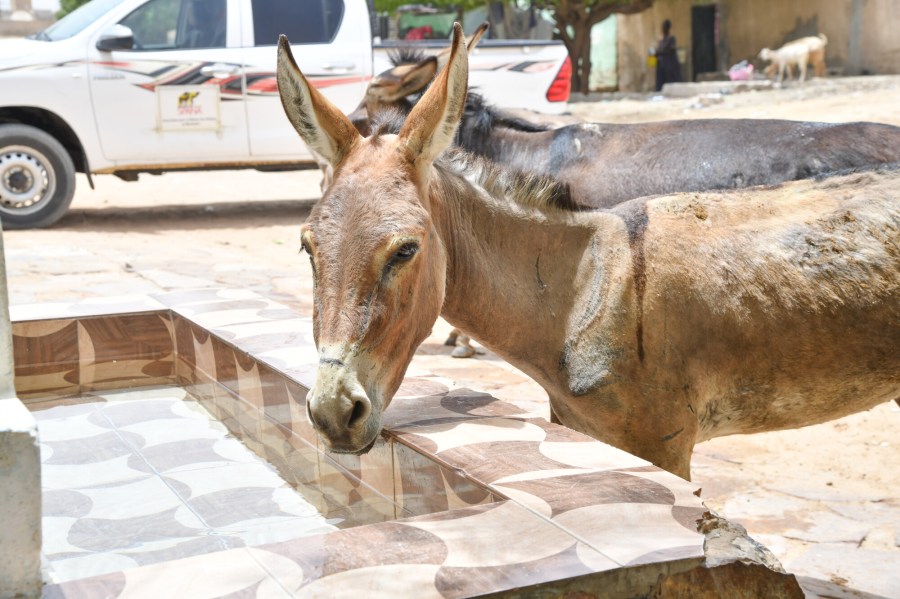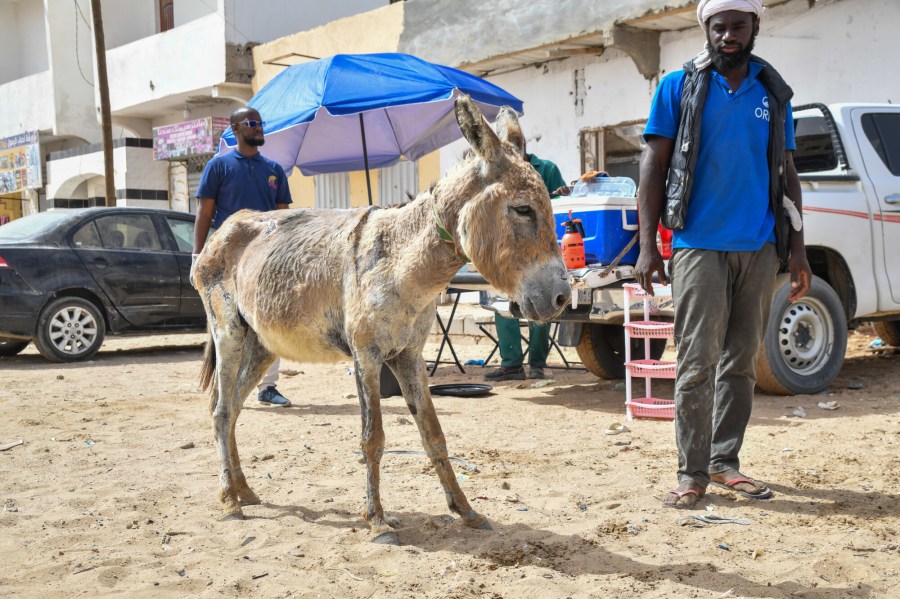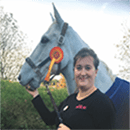Actor Jim Broadbent and Dragons Den star Deborah Meaden have joined other celebrities in signing an open letter addressed to world leaders that calls for access to water for working animals.
The letter has also been signed by TV personality Gail Porter, vets Dr Marc Abraham OBE and Dr James Greenwood, SPANA chief executive Linda Edwards, Irish actor Pauline McLynn and Welsh football manager Neville Southall.
It was sent to coincide with International Working Animal Day (15 June) and states that: “As many countries at the sharp end of the climate crisis are experiencing more frequent droughts and water scarcity, we are calling on you, global leaders, to prioritise access to water for working animals such as horses, donkeys, mules, camels, and oxen.
“Working animals are the unsung heroes of the water crisis.
“It is working animals that help communities survive, carrying clean water long distances in times of drought, yet their essential contribution is too often overlooked and tragically they are often the last to receive the little water that is available.”

Climate crisis
SPANA, the charity that coordinated the letter, also released new findings that if the UK were hit by a major drought, the British public would prioritise drinking water for pets over showering, washing clothes or cleaning the house.
The survey found that 84% would share their water with their pets in a drought, second only to drinking water for their household.
A statement sent to Your Horse by SPANA said that as the Met Office has warned that a hotter than normal summer is twice as likely in the UK this year, concern about the climate crisis is growing.
“Many countries at the sharp end of the climate crisis are already experiencing more frequent droughts and water scarcity,” it said.
“Deciding how to ration limited water during a drought has become a harsh reality, with people carefully dividing scarce supplies between their family, crops and working animals such as horses, donkeys, mules, camels and oxen.
“At the same time, climate change is also increasing the frequency and severity of flooding in some regions, further threatening water supplies.”
Unsung heroes
SPANA’s survey also found that one in three (33%) of the British public were not aware that working animals experience thirst and heat stress due to the climate crisis.
Half of respondents said this made them feel sad, while nearly a quarter (24%) feel angry and frustrated (20%).
Linda Edwards said that working animals around the world are the “unsung heroes” of a water crisis.
“Millions of people across the world depend on working animals for farming, transport and daily survival — especially in regions hardest hit by poverty and climate stress,” she said.
“They are the unsung heroes of the water crisis, transporting water from sources such as pumps and wells to communities.
“Yet, their essential contribution is too often overlooked.”
‘My partner in work’
In the Mauritania capital of Nouakchott, a three-year-old donkey supports a family of four by transporting water for the local community.
He carries heavy containers across sandy terrain and dunes, with no paved paths or shaded rest stops, often working nine to 10 hours a day.
Donkeys typically pull a cart holding two drums of water, weighing around 400kg.
When the donkey became unwell with external parasites and multiple infected skin wounds caused by poor harnessing, his owner Cheikhny took him to a SPANA mobile clinic.
He was treated with anti-inflammatory pain relief injection, antibiotics and an anti-parasitic injection.
Vets also advised Cheikhny about better care, including rest, lighter loads, a padded and properly fitting harness and improved diet.
‘My donkey is important. Without him, I can’t earn money. My children wouldn’t have food,” said Cheikhny.
“He’s my partner in work. People told me that SPANA treat animals well, and it’s true. As soon as I arrived, they took care of him.”









